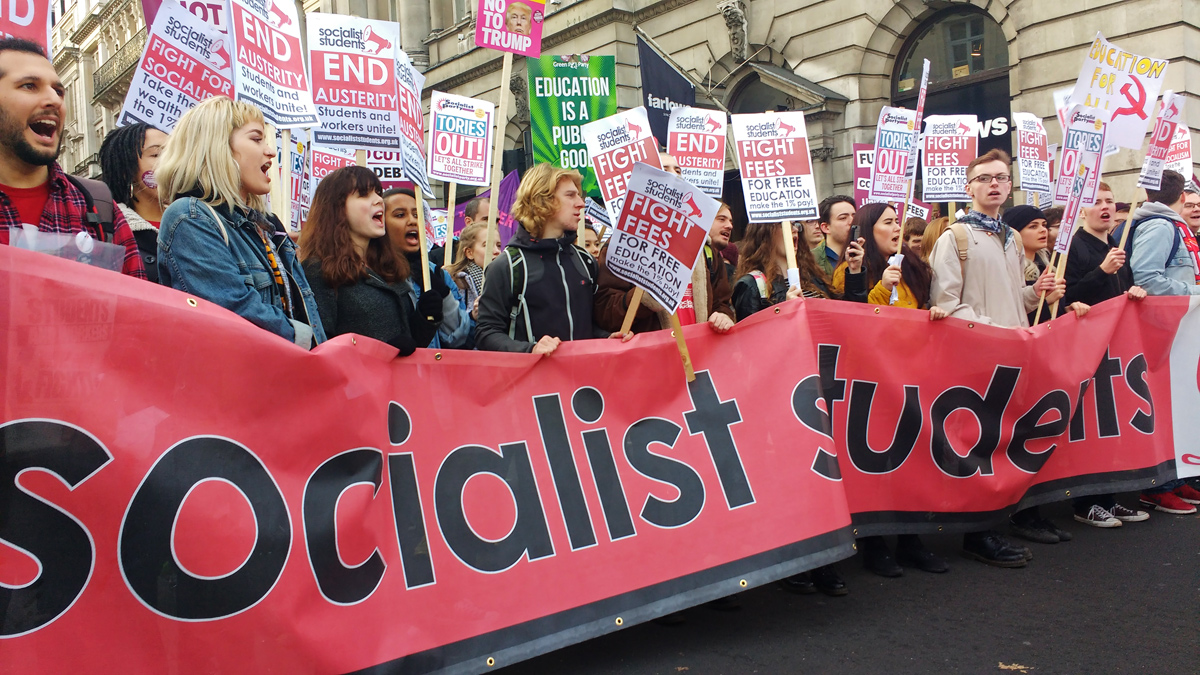National Union of Students faces bankruptcy – transform NUS now!
Theo Sharieff, Socialist Students national chair
Reports have surfaced that the National Union of Students (NUS) is facing a profound financial crisis, estimated to lead the NUS to bankruptcy by April 2019.
In leaked internal reports from the NUS, it has emerged that a £500,000 overdraft facility once available to the NUS expired on 5 November, leaving the organisation searching for £3 million to avoid insolvency. ‘Cash in hand’ is expected to drop to £39,000 by April 2019 and minus £2.9 million by June.
In response to the crisis, a ‘Turnaround Board’ has been established by the union’s leadership.
Solutions to keep the NUS solvent in the immediate future were proposed in a letter signed off by President Shakira Martin to NUS members, including cuts to full-time staff and also ‘radical reforms’ to NUS’s corporate and democratic structures: “The purpose of the reforms will be to drastically simplify and modernise the NUS”. This includes proposals to do away with full-time student officers within the NUS.
A previous ‘governance review’ was launched by the leadership of the NUS in 2007.
2007 review
The review, which was forced through undemocratically by various Blairite leaderships (see ‘National Union of Students: Right wing force through undemocratic changes‘), attacked the democratic structures in place within the NUS.
It cut down drastically the amount of time given each year for delegates to discuss and debate motions to the annual conference, for example.
These changes essentially shifted the focus of the NUS further away from being the student equivalent of a trade union, to being a charity, lobbying politicians on behalf of students.
These kinds of attacks by the right wing of the union did not only affect the political nature of the NUS. Also established was a separate ‘commercial arm’ of the union, including the creation of an NUS discount card.
These provide students certain discounts on campus, while providing companies “opportunities to run flash-sales or competitions to the student market” and also “data capture opportunities”.
The Socialist Party is of course not opposed to students getting discounts on campuses. Yet it’s this undemocratic model – with a board of unelected and appointed trustees and a CEO – which has led the NUS to the brink of financial ruin.
Difficulties
The recently revealed financial difficulties themselves have been attributed to “a series of bad investment decisions made by the board”, after a trustees’ report. This was signed off at last year’s April conference and stated that they had ‘no concerns’ about the financial state of the organisation.
Central to fighting for the continued existence of the NUS then is the fight to transform the organisation from the ground up.
The way forward for the NUS now is to call a special emergency conference, with delegates chosen through special delegate elections carried out within all affiliated student unions, to discuss the way forward for the NUS.
The Socialist Party and Socialist Students would argue within that for the abolition of any unelected boards or committees, and the opening up of the NUS’s books to the democratic oversight of students and elected NUS officials as part of an investigation into the finances and potential financial solutions to the crisis.
Democracy
At this special conference, Socialist Students would argue against the key proposals by the current bureaucratic NUS leadership to resolve the financial difficulties through a combination of further clampdowns on democracy within the NUS and cuts to full-time staff.
Only a restructured NUS – whose leadership is accountable to students, ultimately through a fully restored national conference – can ensure that the NUS’s role in leading students in the fight against cuts, fees and the Tories is not further diminished by this financial crisis.








